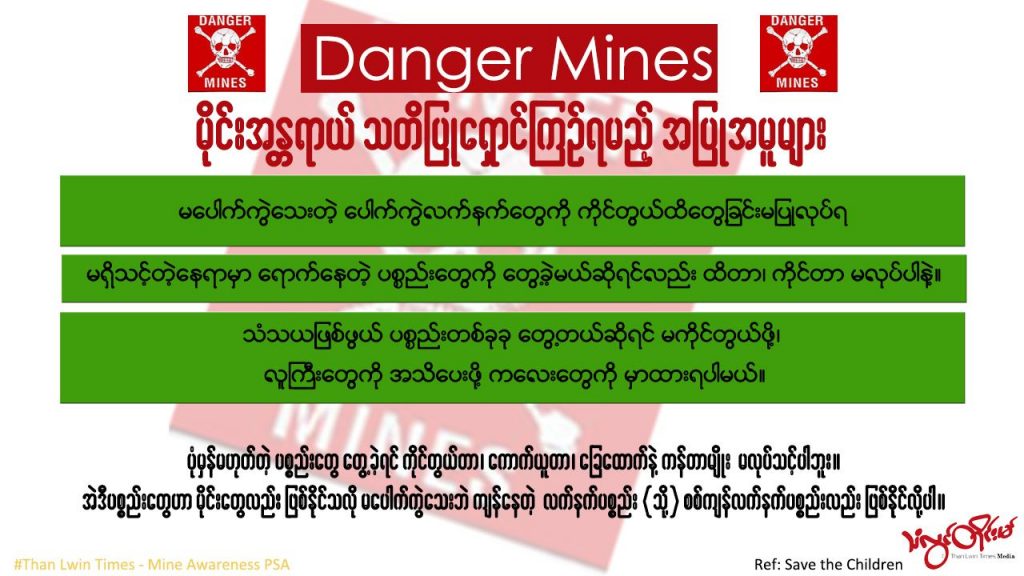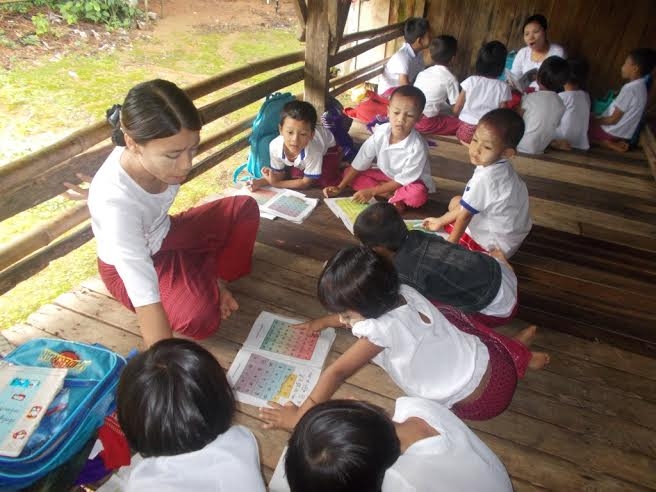Mudon, March (14)
There are differences of opinion among the Mon community regarding the permission to teach Mon language during school hours in Mon state’s villages beginning with the next academic year, with the approval of the military council.
After the peace talks with the military council, the New Mon State Party (NMSP) signed an agreement with the military regime for the teaching of the Mon language at the primary level in public schools attended by the majority of Mon people.
The New Mon Party will begin implementing a pilot program in three townships at the beginning of the following academic year in order to formally introduce Mon language during school hours in Mon communities.
Two instructors will be chosen by the New Mon State Party (NMSP) to teach Mon language for each school as part of the pilot program, which will begin in public schools in the Mon State townships of Thanbyuzayat, Mudon, and Chaungsone.
The Mon language teachers will be appointed by the military council as official employees, and they will get wages and the appropriate teaching aids.

According to a local Mon woman, learning own ethnic literature is only a right to create own destiny, and should not be a right to request from the military council.
It is questionable whether the junta’s move wants to show the rights given to the Mon, and the local Mon woman criticizes that this has blurred the political views of the Mon people.
During the peace talks with the military council, the NMSP agreed to establish and implement a policy to include Mon literature at the primary level in public schools where the majority of the Mon people live, and to liaise between the junta’s State Council and the military regime for the development of the Mon region.
A Mon resident said, “The reason why all the ethnic groups are in revolution is mainly to prevent their nation from disappearing and to have their literary culture like other Burmese people. If the military council really gives permission to teach Mon language during school hours in public schools, we should be ready to accept this with pride. But we have to wait and see whether this actually materializes or not”.
Than Lwin Times called the MNSP’s internal affairs officer, Nai Banyar Le, at least three times regarding the matter, but he remained silent.
From February 13 to 15, the NMSP and the military regime discussed the amendment of the 2008 Constitution, regional development, the right to teach Mon literature, and other general issues.
The teaching of relevant ethnic literature outside of school hours at the elementary level in public schools started during the 2013–2014 academic year under the administration of President U Thein Sein.
According to the junta’s Ministry of Education, a total of more than 15,000 Teaching Assistance (TA) and Language Teacher (LT) have been appointed for the teaching of ethnic languages and literature until the 2022-2023 academic year.
News-Than Lwin Times

